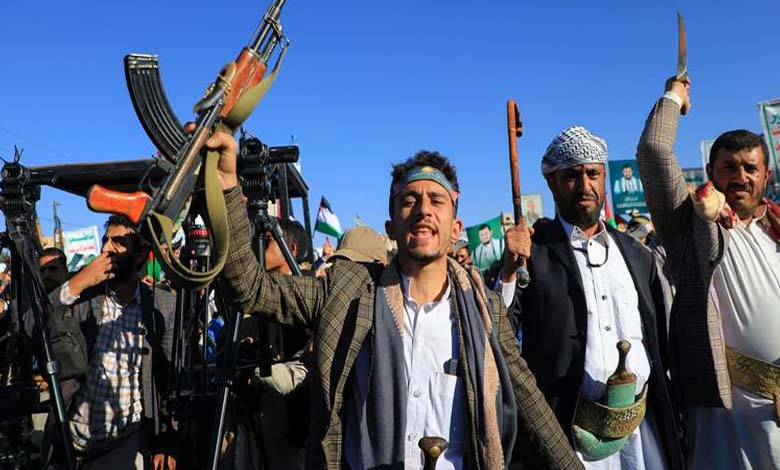Divisions among Houthi Leaders… Allegations of Treason and Espionage

The security apparatus assigned to protect the leader of the Iranian-backed Houthi militia in Yemen, Abdul-Malik al-Houthi, has isolated him from his family circle and prohibited him from meeting with family-affiliated leaders.
-
Houthi Militias: Panic, Intelligence Breaches, and Accusations of Treason
-
Painful blows to the Houthis: US-British airstrikes on Sanaa and Amran
Informed sources confirmed that security measures imposed by Iranian officials overseeing Abdul-Malik al-Houthi’s safety have led to his complete isolation from his family, under the pretext of preventing his assassination or the disclosure of his whereabouts to external entities, as reported by Al-Montasaf.
The sources further revealed that Abdul-Malik al-Houthi has been barred from meeting prominent militia leaders, including family members such as his uncle Abdul-Malik al-Houthi, who falsely claims the position of Interior Minister in the militia’s unrecognized government, and Ali Hussein al-Houthi, his elder brother who manages multiple security agencies.
-
Is the End of the Houthi Terrorist Militias in Their Stronghold Near?
-
Houthi Leader Admits Iranian Support and Threatens Israel
He has also been prohibited from meeting his cousin Mohamed Ali al-Houthi, a senior militia leader, as well as leaders such as Abu Ali al-Hakem, Mehdi al-Mashat, and even the head of the militia’s negotiating delegation and his financial and commercial partner, Mohamed Abdel Salam Fleytah.
The sources indicated that the militia leader fears that one of these leaders, or others, might be in contact with foreign intelligence agencies such as Israel or the United States, similar to what occurred within the Lebanese Hezbollah, which led to the assassination of its leader Hassan Nasrallah.
-
Houthi Leaders Flee Sanaa… Details
-
“The Ultimate Flood”: How the Houthis Turned African Migrants into Fuel for War
It was noted that Abdul-Malik al-Houthi now communicates with these leaders and others only from his secret location, either through landline calls or written messages bearing his personal seal, causing discontent among the militia’s leadership.
Since the assassination of Hezbollah leaders, Iran’s proxy in Lebanon, Abdul-Malik al-Houthi has lived in a state of suspicion, mistrust, and fear of those closest to him. He no longer even trusts the special security apparatus assigned by Iran’s Supreme Leader to protect him for several years.
-
The Houthis Struggle to Avoid al-Assad’s Fate… What Are They Doing?
-
A Last Card against Isolation: The Houthis Resort to the “Sanaa Conference”
This atmosphere of distrust has created divisions within the militia’s leadership, with leaders accusing each other of treason and espionage for the enemy. Some prominent figures are even positioning themselves as potential replacements for Abdul-Malik al-Houthi as the militia’s leader.
It is worth noting that the Houthi militia’s ranks have been in turmoil and confusion since the events in Lebanon and Syria, exacerbated by Israeli threats to eliminate militia leaders in retaliation for recent attacks on Israel, despite their lack of significant impact.












